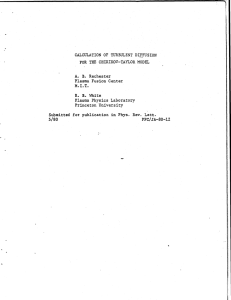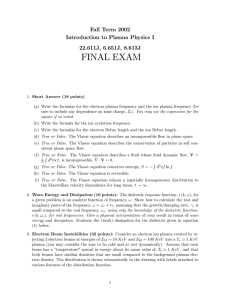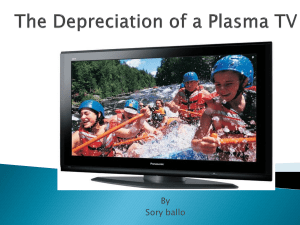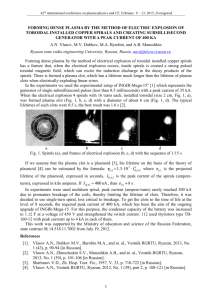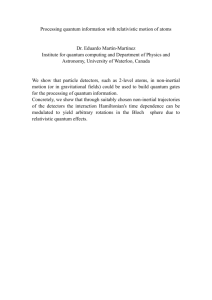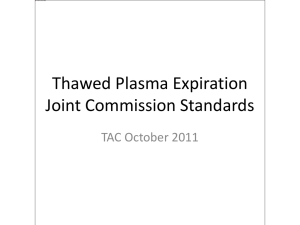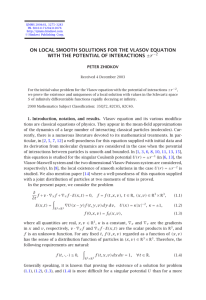MAXWELLIAN PLASMA AND QUANTUM FLUCTUATIONS
advertisement
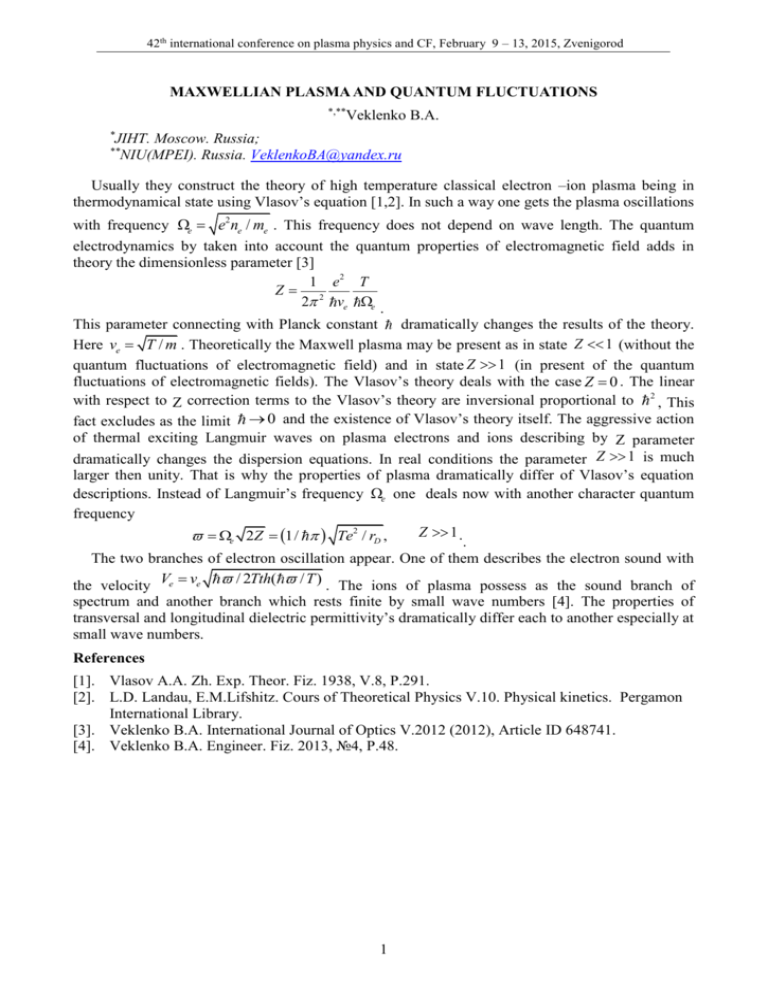
42th international conference on plasma physics and CF, February 9 – 13, 2015, Zvenigorod MAXWELLIAN PLASMA AND QUANTUM FLUCTUATIONS *,** Veklenko B.A. * JIHT. Moscow. Russia; NIU(MPEI). Russia. VeklenkoBA@yandex.ru ** Usually they construct the theory of high temperature classical electron –ion plasma being in thermodynamical state using Vlasov’s equation [1,2]. In such a way one gets the plasma oscillations with frequency e e2 ne / me . This frequency does not depend on wave length. The quantum electrodynamics by taken into account the quantum properties of electromagnetic field adds in theory the dimensionless parameter [3] 1 e2 T Z 2 2 ve e . This parameter connecting with Planck constant dramatically changes the results of the theory. Here ve T / m . Theoretically the Maxwell plasma may be present as in state Z 1 (without the quantum fluctuations of electromagnetic field) and in state Z 1 (in present of the quantum fluctuations of electromagnetic fields). The Vlasov’s theory deals with the case Z 0 . The linear with respect to Z correction terms to the Vlasov’s theory are inversional proportional to 2 , This fact excludes as the limit 0 and the existence of Vlasov’s theory itself. The aggressive action of thermal exciting Langmuir waves on plasma electrons and ions describing by Z parameter dramatically changes the dispersion equations. In real conditions the parameter Z 1 is much larger then unity. That is why the properties of plasma dramatically differ of Vlasov’s equation descriptions. Instead of Langmuir’s frequency e one deals now with another character quantum frequency Z 1 . e 2Z 1/ Te2 / rD , . The two branches of electron oscillation appear. One of them describes the electron sound with the velocity Ve ve / 2Tth( / T ) . The ions of plasma possess as the sound branch of spectrum and another branch which rests finite by small wave numbers [4]. The properties of transversal and longitudinal dielectric permittivity’s dramatically differ each to another especially at small wave numbers. References [1]. Vlasov A.A. Zh. Exp. Theor. Fiz. 1938, V.8, P.291. [2]. L.D. Landau, E.M.Lifshitz. Cours of Theoretical Physics V.10. Physical kinetics. Pergamon International Library. [3]. Veklenko B.A. International Journal of Optics V.2012 (2012), Article ID 648741. [4]. Veklenko B.A. Engineer. Fiz. 2013, №4, P.48. 1
